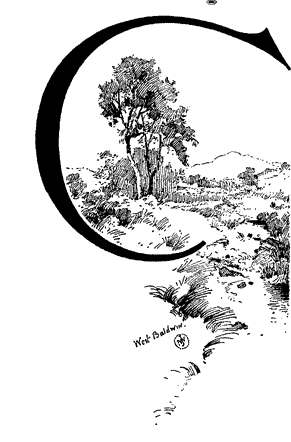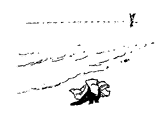
ASHIN
AND CASHEN
CONTRACTED FROM
MAC CAISIN, 'CAISIN'S SON.' (CAISIN IS A DIMINUTIVE OF CAS 'CROOKED.'THE NAME CAISIN MUST ORIGINALLY have meant a crooked eyed,crooked legged, or metaphorically stupid, person.
[From Manx Note Book vol ii, 1886]
SURNAMES DERIVED FROM PERSONAL
NAMES OF PURELY NATIVE ORIGIN
CHAPTER II: PART II.

ASHIN
AND CASHEN
CONTRACTED FROM
MAC CAISIN, 'CAISIN'S SON.' (CAISIN IS A DIMINUTIVE OF CAS
'CROOKED.'THE NAME CAISIN MUST ORIGINALLY have meant a crooked
eyed,crooked legged, or metaphorically stupid, person.
CAISIN was the son of Cas the descendant of Cormac,who was the younger son of Olioll Oluim, King of Munster.
CAISIN, scribe of Lusea,' A.D. 695.*
CASHEN is found in Ireland.
MCCASH, MCCASHEN [1511], McCASHE [1540], CASHEN [1641], CASHIN [1677], CASSIN [1687].
Braddan, Lezayre (c), elsewhere (u).
*Four Mast., Vol. I., P. 299.
CALEY, contracted from Mac Caolaidhe, 'Caoladh's son,' (caol, 'slender.')
'To O'CAOT.AIDHF the territory is fair,'+
Compare (Irish) O'CAYLEY, CAYLEY, KYLY, KYELY, KIELY, (Gaelic) McALLEY. MCCALEY, [1511], MCCALLE [1521], CALLY, [1605], CALLIE [1617], CALEY [1642], CALLEY, [1676].
Lezayre (vc), Michael, Ballaugh (c), elsewhere (u).
+O'Huidhrin, p. 87.
CORTEEN, from Mac Cruitin, 'Cruitin's son,' (cruit, a 'hump.' CRUITIN becomes CURTIN by metathesis.
Ceallach MAC CURTIN, historian of Thomond,' A.D. 1376.*
CORTIN [1652], CORTEEN [1659], CORTEENE [1686].
It is almost confined to the parish of Maughold, and is a purely Manx name.
*Four Mast., Vol. IV.
COTTEEN, is probably merely a corruption of CORTEEN, It was formerly common in Malew, but is now scarcely found. Edward COTTEEN was a member of the House of Keys in 1813.
COTTEENE [1653], COTTEEN [1654].
COGEEN, contracted from Mac Cagadhain, (corrupted into MacCogan) 'Cagadhan's son,' (cagadh, just.')
'MAC CAGADHAIN is over the noble Clann Fearmaighe.'§
Compare (Irish) COGAN, MACCOGAN, it is very uncommon in the Isle of Mann.
The name CREGEEN, is frequently softened into COGEEN in conversation.
COTGEEN [1737], COJEEN [1771], COGEEN [1785].
§ O'Dubhagain, P. 57.
CALLOW, contracted from Mac Calbach, 'Calbach's son.
CALBACH Is pronounced CALWAGH, which is easily softened into CALLOW. It seems to mean 'bald,' cognate with the Latin calvus, a word which was adopted into the Teutonic languages at an early date, so that we have old English Calugh, Calewe, Anglo-Saxon Calu, bald.' Milton speaks of callow young.' Callow here referring to the condition of the young unfledged bird. 'Richard le CALEWE' is in the Parliamentary Writs for A.D. 1313. ALLOW and ALOE are met with as Christian names in the Isle of Mann till the middle of the 17th century, which points to the possibility of another derivation.
CALOWE, CALO [1511], CALLOW, CALOE [1586], CALOW [1611].
Maughold, Bride (vc), jurby, Braddan, Lezayre, Malew, Arbory, Lonan (c), elsewhere (u).
KERMEEN, perhaps contracted from Mac Heremon,
'Heremon's son.' HEREMON was the 7th in descent
from Milesius and became Monarch of all Ireland.
Compare (Irish) HARMON, ERWIN, IRWIN, KIRWAN, (English) CURWEN.
MAC ERMYN [1429], MAC ERYMYN, and MAC KERMAYNE [1511], MAC CORMYN [1521], KERMEEN [1630], KERMEN [1642], KIRMEENE [1668].
This name is now uncommon everywhere. Formerly Maughold (vc), Braddan, German (c), elsewhere (u).
COLVIN and CALVIN (extinct), may be derived from Calbhin, a diminutive of Calb, 'bald' (see CALLOW).
COLBIN [1610], CALVIN [1650], COLVIN [1668].
COWELL and COWLE, contracted from Mac Cathmaoil (corrupted into Mac Cawell), 'Cathmaol's son.'
The personal name CATHMAOL has been explained as meaning 'battle heap.'
'Conor MAC CAWELL, chief of Kinel Ferady,' A.D. 1252.*They were the ancient chiefs of Kinel Ferady, and were famous in Ireland for their learning, and the numerous dignitaries they supplied to the Church.
COWELL and COWLE are purely Manx names.
McGILCOWLE, McCOWLE, MCCOWELL, COWLE [1511], COWELL [1690] COWEL [1700], COWILL [1711], COWL [1728], COWEL [1737], COWIL [1777].
Bride, Andreas (vc), Marown, German, Lezayre, Patrick, Malew, Santon (c), elsewhere (u).
*Four Mast., Vol. III., P. 3 5.
COOLE and COOIL, contracted from Mac Cumhaill 'Cumhal's son,' (comhal, courageous.') Finn
MAC CUMHAIL, or Finn MAC COOLE-, the Fingal of Ossian, was the hero of many beautiful legends.
Compare (Irish) COYLE.
McCOIL, MCCOLE [1511], COOLE [1666], COOILE, MCCOILE [1711], COOIL [1731].
Andreas, German, Rushen (c), elsewhere (u).
QUILL, contracted from Mac Cuill, 'Coll's son.' One of the three first traditionary rulers of the Milesian Colony was called MAC CUILL. According to an ancient Irish poem he was so called because he worshipped the hazel tree (coll).*
' Ceaunfaeladh ua CUILL,' A.D. 1048 +
QUILL is found in Ireland. It is very uncommon in the Isle of Mann.
McCUILL [1511], QUILL [1624].
Maughold, Malew, Bride, Lonan (u), elsewhere (w).
KAY, KEY, KIE, KEE, contraaed from Mac Aedha, 'Aedh's son.'
'Cucail MAC AEDHA,' A.D. 1098.*
'AE ' DH, (ay, pronounced like the ay in say), genitive AEDHA, is interpreted by Cormac Mac Cullenan, Colgan and other writers, to mean fire . . . . This name has been in use in Ireland from the most remote antiquity . . . . It was the name of a great many of our ancient kings; and the Irish ecclesiastics named AEDH are almost innumerable . . . . The usual modernised form of Mac Aedka is MAGEE, which 'S correct, or McGEE not so correct, or MAC KAY, which would be correct if it were accentuated on the last syllable, which it generally is not.'§
The form KEE may possibly be a contractlon of Mac Caoch, the dimsighted (man's) son.'
Compare (Irish and Gaelic) McKIE, McKEY, McKEE, MAGEE, MEGEE, McGHIE, McGHEE, McKAY.
None of these names are common in the Isle of Mann, KAY being almost confined to the parish of Michael, and Kie, KEY, and Kee to jurby, Andreas, and Patrick.
McKEE [1408], McKEY [1429], McKAY [1430], McKYE and McKIE [1511], KEE [1610], KEY [1616], KAY [1617], KIE [1618], KEAY [1637].
Michael, Jurby, Andreas, Patrick (c), elsewhere (u).
Four Mast., Vol. I., PP. 24-5. t Four Mast., Vol. ll., P. 853.
Four Mast, Vol. ll., p. o6i.
Joyce-lrish Names of Places; 2nd Series, p. 147.
QUAY, probably contracted from Mac Kay. It is a purely Manx name, and much commoner than KAY, KIE, KEY, or KEE.
MAC QUAY [1429], MAC QUA [1511], QUAY [1628].
Maughold, Santon, Malew, German, Michael, Patrick (c), elsewhere (u).
KEW, contraned from Mac Hugh, the anglicised form of Mac A edha.
In translations from the Irish MSS., AEDH is always made HUGH, which is a Teutonic name with an altogether different meaning.
Brian McHUGH Oge, Mac Mahon, and Ever Mac Cowley came in with those their complaints.'*
McKEWE [1511], KEW [1649].
It was always an uncommon name, and is now scarcely found.
KEAREY, (extinct) from O'Ciardha, usually anglicised CAREY.
'Aedh Ua CIARDHA,' A.D. 999.+
Formerly common in Braddan.
KEARIE [1629], KERY [1698], KEAREY [1703].
CROGHAN, contracted from Mac Ruadhagain, (corrupted into Mac Rogan), 'Ruadhagan's son.' Ruadhagan is a diminutive of ruad, 'red.'
'Murchadh Donn O'Ruadhagain,' A.D. 1103.++
CROGHAN may possibly have the same origin as CREGEEN. It is not a common name in the Isle of Mann.
CROGHAN [1511], CROUGHAN [1618].
Jurby, German, Lonan (c), elsewhere (u).
A.D. 1022, 'Cathal O'Criocain.'§
Camden, (Ireland), p. 123. + Four Mast., Vol. II., P. 743.
Four Mast., Vol. II., P. 973.
Four Mast., Vol. ll., p. 8o3. (Now Creighan).
CREGEEN, contracted from O'CRIOCAIN, Criocan's son.'
CREGEEN may possibly be contracted from Mac Ria,-haiii (corrupted Mac Regan:) Riaghan is a diminutive of riach, grey,' or sometimes 'swarthy.'
Compare (Irish) CREIGHAN, CREGAN.
CRIGENE [1649], CREDGEEN [1654], CREDJEEN [1708], CREGERN [1722].
Jurby, German, Lonan (c), elsewhere (u).
CREEN (extinct), contracted from Mac Braein, now Mac Breen, 'Breen's son.'
'Dairmaid UA BRAEIN,' A.D. 1170,
Compare (Irish) BREEN and MACBREEN.
CREENE [1601], CREEN [1719], CRIN [1727].
It is not found after the middle of the 18th century.
GILLOWYE, MAC GILLOWYE, LOWEY, (extinct). Perhaps the descendants of LUIGH or LEWEY, a name borne by the son of Cormac Gaileng. The name LUGHAIDH was anglicised LOWAY in Ireland.
GILLOWYE and MAc GILLOWYE are only found in 1511, but LOWEY survives as late as 1734, and was at one time common in several parishes.
LOWEY [1609], LOWIE [1611], LEWIE [1629], LOWEAY [1670], LOWY [1707], LOWAY [1734].
Formerly Maughold (vc), Jurby, Rushen (c), elsewhere (u).
MYLREA, contracted from Mac Gilrea, a corrupted form of Mac Giolla Righ, Giolla Righ's son'-Giolla Righ meaning King's servant.
Compare (Irish and Gaelic) GILREA.
MAC GILREA [1511], ILLEREA [1598], ILLIREA [1599], MACLEREA [1601], MACCILLREA [1603], ILLERAY [1618], MOLERIE§ [1631], MCYLLERIAH [1650], MEYLREA [1654], ILLYREAH [1660], MALLEREAY § [1684], MOLLEREIGH§ [1690], MALLEREIGH§ [1691], MALLERY§ [1693], MYLREEY [1754], MYLREA [1750], and many other forms.
§ These forms look as if they were derived from Maol -righ, 'the King's tonsured servant,' and the old pronounciation, MOLDERAY, points to the same conclusion. McYLREA is the commonest form during the 18th century.
Jurby, Ballaugh, Braddan, Malew (c), elsewhere (u).
MYLROI and MYLROIE, contracted from Mac Gilroy, a corrupted form of Mac Giolla-ruaidh, Glolla-ruadh's son,' or the red-haired youth's son.' , When an adjective, signifying a colour or quality of the mind or body, is postfixed to Giolla, then it has its ancient signification-namely, a youth, a boy, or a man in his bloom ; Giolla-ruadh, i.e. the red-haired youth; Giolla-riabhach, the swarthy youth; Giollabuidhe, the yellow youth, &c.'*
'Baethan MACGILROY,' A.D. 1408.+
This name is often confused with MYLREA in the spelling, and may perhaps have the same origin as FITZROY, the King's son.
Compare (Gaelic) MCILROY, (English) MALLORY, FITZROY.
MELROIE [1601], McYLEROIJ [1612], MOLLEROY [1631], MYLRIOIYE [1718], MYLROIJ [1724], McYLROYJ [1730]: MYLEROI [1744], MYLROI [1759], MYLROI [1762], MYLROIE [1782].
It is almost confined to the parish of Lonan.
Lonan (c), Braddan, Ballaugh (u), elsewhere (w).
Four Mast., Vol. Ill., P. 2. (O'Donovan's note.)
+ Four Mast., Vol. IV.

|
|
||
|
|
||
|
Any comments, errors or omissions
gratefully received The
Editor |
||